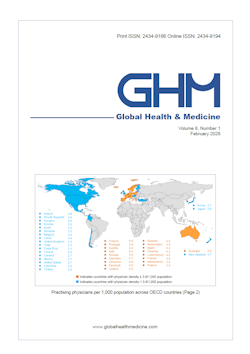Global Health & Medicine 2025;7(5):347-351.
Perioperative and precision strategies in resectable intrahepatic cholangiocarcinoma
Chen L, Han RY, Song TQ, Song PP, Tang W
Intrahepatic cholangiocarcinoma (ICC) has a poor prognosis, with low rates of surgical eligibility and high recurrence. Effective perioperative strategies are essential. For adjuvant treatment, capecitabine (based on the BILCAP trial) and S-1 (from the ASCOT trial) have become standard regimens. Neoadjuvant therapy using gemcitabine-platinum combinations and locoregional strategies such as hepatic artery infusion chemotherapy (HAIC) and yttrium-90 radioembolization (Y-90 TARE) have improved resectability and survival outcomes. Molecular profiling has revealed actionable alterations in nearly 70% of ICCs. FGFR2 fusions, IDH1 mutations, and BRAF V600E mutations can be targeted with inhibitors such as pemigatinib, ivosidenib, and dabrafenib-trametinib, respectively, showing promising response rates in clinical trials. Immunotherapy has demonstrated efficacy in the microsatellite instability-high (MSI-H) subtype. Combination strategies involving PD-1 inhibitors with radiotherapy or anti-angiogenic agents are further expanding the potential for treatment. Future efforts should focus on standardizing resectability criteria, expanding access to molecular profiling, and accelerating Phase III trials.
DOI: 10.35772/ghm.2025.01102







